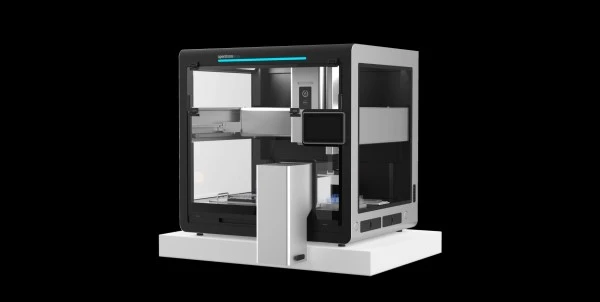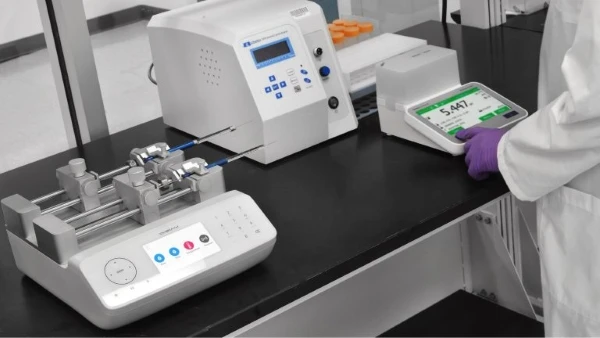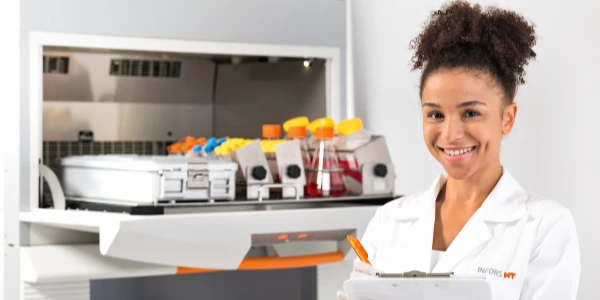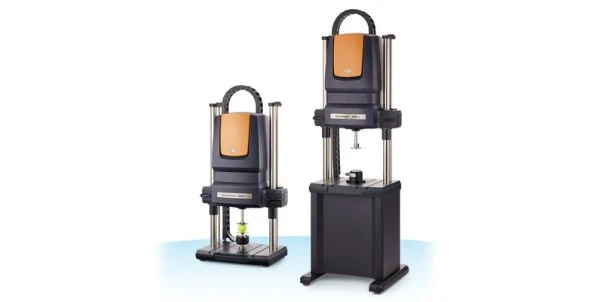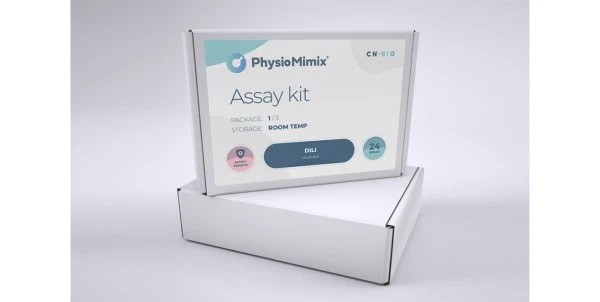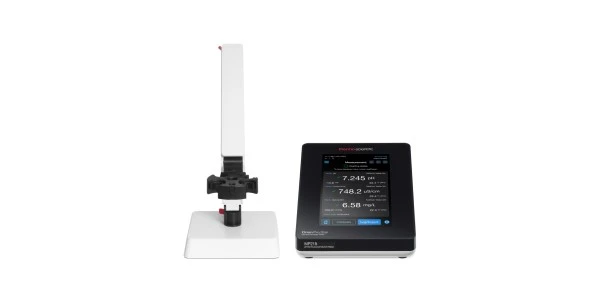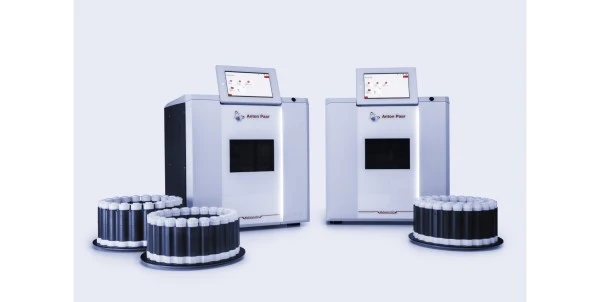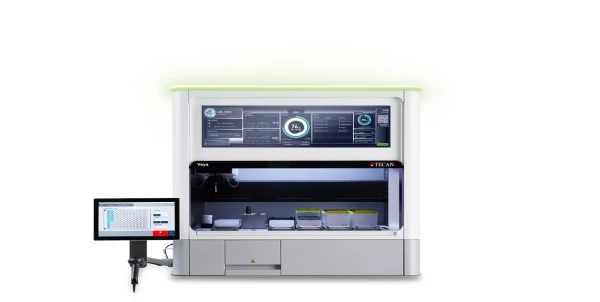
High-Performance Syringe Pumps and Evolving Microdispensing and Manufacturing Applications
Overview and relevant industry applications
Microdispensing techniques have evolved to suit modern manufacturing processes which require ultra-low volumes of dosing reagents delivered with high accuracy and precision. Applications include fabrication of advanced medical devices, electronics and robotics, and sustainable energy components such as fuel cells and batteries.
In many of these applications, high-performance syringe pumps are tasked with driving delivery of liquids with precise tolerances, often under high temperature and pressure conditions. Innovations in areas such as additive manufacturing and custom fabrication will continue to require advanced technologies designed to handle these complex tasks.
Microdispensing
The continuing trend of device miniaturization has created challenges for device design and manufacturing. These difficulties relate in part to the smaller amounts of liquid raw materials and catalysts, hardeners, or other additives used in production processes. Large-scale designs which include defined volumes and variances become problematic as these processes are scaled down in size and miniaturized. As a result, high-performance equipment is often needed to supply sub-microliter volumes with sub nanoliter variation and other metrics.
Metrics and requirements for microdispensing technologies
Increased accuracy and precision in the delivery of ultra-low volume liquids has created the possibility of a wider range of chemical components, compatibilities, and time-sensitive requirements. The cycle time of a fabrication process can affect both the integrity of the product as well as the throughput of production. From these and other considerations, it is clear that advanced microdispensing liquid delivery devices should provide, not only high accuracy and precision performance, but compatibility and time control functions as well.
Advanced fabrication applications
The ability to accurately and reliably dispense ultra-low volumes has obvious effects on manufacturing efficiency. Resource costs are reduced dramatically, as small-scale fabrication processes consume less raw material. Higher precision plays a factor as well, leading to less waste production in the process.
Enhanced chemical compatibility of microdispensing devices serves to broaden the range of potential reagents and additives, thus driving generation of a wider scope of materials. The ability to control the time aspect of microdispensing and support time-dependent reactions, translates to greater access to novel fabrication materials as well.
Medical Devices
Thus, advanced microdispensing devices lend to a growing number of potential fabrication applications. As an example, heart stents and other small devices continue benefit from innovations in fabrication materials and design. Medical devices of various types, from artificial joints to spinal implants and therapeutic delivery agents, benefit from a greater range of designs and fabrication materials to suit.
A modern revolution has arisen from innovations in materials science and microdispensing technologies, bringing improved accuracy, capability, and versatility to medical device manufacturers. All of the factors discussed above serve roles in this revolution, which in turn offers promise for improved human health and lower societal cost burdens.
Electronics and Robotics
Frontiers in science require innovations in fabrication materials and processes. Faster data processing and more robust data storage technologies necessitate the design of new devices using novel methods and materials. Whether new technologies incorporate miniaturized structures, composite frameworks, or metal alloy conductors, microdispensing approaches add significant value and capabilities.
Devices designed to handle space and extreme conditions such as interplanetary exploration will command innovative manufacturing approaches. Robotics and Artificial Intelligence will continue to evolve in step with advanced materials and devices. An example of this includes implantable sensors and electrodes intended to control muscle movement in disabled individuals through conveyance of neurological activity. The research and development behind these applications as a whole depends on microdispensing devices and advanced fabrication at one or several points in the manufacturing process.
Microdispensing for Advanced Manufacturing
Looking forward, one can foresee advanced microdispensing methods in novel applications such as cyclic fabrication systems (CFSs). The concept of CFS, or the development of self-replicating devices, while not new, has yet to see substantial use in mainstream manufacturing. With the sustainable energy revolution in motion, CFS and microdispensing technologies may see increased use in self replicating processes such as solar panel array fabrication or energy storage and battery technologies.
Summary
Microdispensing has important utility in both current fabrication processes and novel potential applications. Modern microdispensing applications necessitate advanced technologies such as high-performance programmable syringe pumps. Performance metrics including high accuracy and precision flow rate control, ultra-low volume liquid delivery, and extended chemical compatibility and robustness are key factors for consideration.
This article was written by LabX and published in conjunction with Chemyx.
View Chemyx listings on LabX.com
Chemyx Inc. develops and manufactures microsyringe pump and high-pressure syringe pumps for a variety of R&D and manufacturing applications in biotech, pharma, chemical and oil & gas. Widely recognized for fluidic precision and innovative technology, the company is one of the market leaders in precision dosing, microfluidics, mass spec calibration and in related applications.
Chemyx syringe pumps are designed with advanced, highly durable materials that provide extreme laboratory precision at the best value to our customers. For more specific application requirements, Chemyx scientists also build custom units and can provide additional OEM manufacturing services that expand our customers’ offerings in the market.
A leader in innovation, Chemyx was the first company to develop the next-generation syringe pump with an interactive LCD interface and integrated syringe database. Today, Chemyx continues to push advancements in the laboratory services industry to facilitate and further the research of the world’s scientists, academics, and manufacturing companies.
